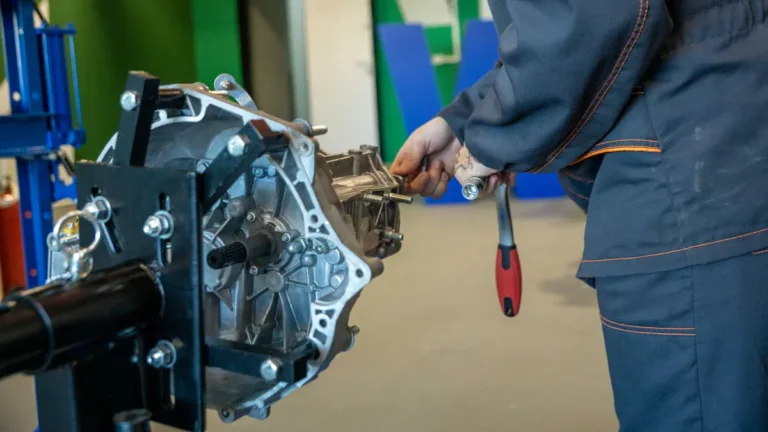Giving a car to a child in Louisiana involves a clear and careful process centered on completing an Act of Donation and properly transferring the vehicle title. Both the donor and the recipient must sign the Act of Donation and the DPSMV 1799 form in front of a notary, with two witnesses present. Proof of insurance in the child’s name is required before the transfer, and license plates should be removed or surrendered. Following notarization, the documents must be submitted to the Office of Motor Vehicles either in person, via mail, or online. To avoid future liability, the donor must file a Notice of Vehicle Transfer within 15 days. This procedure guarantees the transfer is legal and smooth, while carefully handling tax exemptions and registration details that help protect both parties. Grasping these steps helps ease what can seem like a complex task but is necessary for a successful gift transfer in Louisiana.
Essential Documents Needed for Vehicle Transfer in Louisiana
Transferring a vehicle to a child in Louisiana requires gathering several key documents to guarantee the process is legal and smooth. The cornerstone is the current vehicle title, which must include notarized signatures from both the donor and the recipient to validate ownership transfer.
Completing the Vehicle Application for Title form (DPSMV 1799) is essential to register the new owner officially. Both parties must present valid identification, such as a driver’s license, to verify identities and protect privacy throughout the transfer.
Additionally, proof of insurance from the recipient is mandatory before the vehicle can be legally driven. To formalize the gifting process, an Act of Donation of a Movable form must be notarized, often requiring witnesses, ensuring all documents comply with Louisiana’s legal standards and privacy protection.
Step-by-Step Process to Transfer a Car Title to Your Child
Transferring a car title to a child in Louisiana requires careful attention to notarization and signatures to guarantee the process is legally valid and smooth.
Both the current title and the Act of Donation must have notarized signatures, often with witnesses present, to confirm the gift formally.
Alongside this, the necessary documents such as the Vehicle Application for Title and proof of insurance must be completed and submitted properly to protect both parties and confirm ownership transfer.
Notarization and Signatures
How exactly do notarization and signatures work in transferring a car to a child in Louisiana? In this process, notarization plays an essential role through confirming the identities of the signing parties and verifying the authenticity of their signatures. This practice reduces notary liability through preventing disputes related to forged or coerced signatures.
The Act of Donation form and the vehicle title require notarized signatures of both the donor and recipient, which legally validate the transfer. Additionally, the act demands the presence of two witnesses, further strengthening forgery prevention.
Should the donor and child cannot sign together, alternative notarization and witness arrangements apply to maintain validity. Proper notarization safeguards both parties from future legal complications and helps avoid voided titles during the transfer. This thorough process guarantees the vehicle’s new ownership is clear and uncontested.
Required Documentation
The process of giving a car to a child in Louisiana starts with gathering the right documents that prove ownership, consent, and legal compliance for the transfer.
Key documents include the current vehicle title with notarized signatures from both donor and recipient, a completed Vehicle Application for Title form (DPSMV 1799), and proof of insurance from the child before the vehicle can be operated.
Additionally, an Act of Donation of a Movable form is necessary to legally gift the vehicle and confirm consent.
- Valid identification from both parties helps verify identity.
- Notarization and witness signatures protect against legal disputes.
- Maintain diligent record retention with digital backups for secure proof and future reference.
These steps help avoid delays and facilitate a smooth title transfer process with the Louisiana Office of Motor Vehicles.
Tax Implications and Fee Exemptions for Family Vehicle Transfers
Although gift-giving within families often feels like a simple gesture of love, vehicle transfers in Louisiana come with specific tax and fee rules that can affect both parties.
Estate planning plays a key role during transferring vehicles to family members because gifts exceeding $15,000 can trigger federal gift taxation responsibilities for both the donor and recipient.
To ease this, Louisiana requires submitting Form MVU-26 to claim exemption from sales tax on family transfers, reducing financial strain.
However, transfer fees and registration costs still apply, though they can be minimized by using the correct paperwork.
Notably that no tax deductions apply unless the vehicle is donated to charity.
Insurance must be obtained from the recipient before driving but does not impact tax obligations, maintaining compliance and protecting all involved.
Handling License Plates and Filing Liability Release Notices
If giving a car to a child in Louisiana, the donor should remove the regular license plates from the vehicle before handing it over.
These plates can be destroyed or surrendered to the Office of Motor Vehicles, while specialty plates like prestige or personalized ones can be kept with the donor.
Filing a Notice of Vehicle Transfer with the OMV is crucial to release the donor from future liability and protect both parties after the transfer.
License Plate Removal
Most parents want to make sure every detail is handled right as they give a car to their child, and that includes managing the license plates and paperwork that transfers responsibility for the vehicle in Louisiana. Once the title and donation documents are signed, the next step is clear: parents should remove the regular license plates before handing over the vehicle. These plates belong to the original owner, not the car, so returning or recycling them helps prevent mix-ups and protects against misuse. Louisiana law expects the Notice of Vehicle Transfer to be filed, which officially flags the change in ownership and releases the donor from liability when the plates are no longer on the road. Digital deactivation of the plate from the donor’s record can occur once this notice is processed, adding another layer of security.
- Regular plates must come off the gifted car and can be recycled, surrendered to the Office of Motor Vehicles (OMV), or kept by the donor as a memento—special plates, like personalized or prestige ones, can sometimes be kept or transferred when eligible, but standard plates cannot stay with the new owner.
- Truck and trailer plates are an exception; they might remain with the vehicle during the transfer, but always verify with the OMV or a local title expert to avoid surprises.
- Filing the Notice of Vehicle Transfer is simple and can be done online, via mail, or in person at the OMV, and this step is essential for digital deactivation and liability release—completing it means the state recognizes the end of the donor’s responsibility for the car.
- Not filing the notice risks the donor remaining liable for tickets or incidents involving the donated vehicle, so immediate action gives peace of mind and clear boundaries in the transfer.
Some parents like to keep a copy of the plate recycling receipt or OMV confirmation, which acts as extra proof that the plates left the vehicle and the state has been notified. This careful approach reassures both parent and child that the transfer is clean, official, and worry-free.
Transferring Specialty Plates
Specialty license plates require more attention than regular plates during a vehicle transfer in Louisiana because they carry unique identification or personal significance. Unlike standard plates that must be removed and destroyed or surrendered, specialty plates often involve considerations of vanity transferability and plate scarcity.
Vanity plates with personalized messages can be transferred to the recipient provided state rules allow, preserving their special meaning. However, plates associated with limited editions or prestige can be retained by the donor, especially when their scarcity makes replacement difficult. This requires careful coordination with the Louisiana Office of Motor Vehicles to secure proper documentation.
Transferring specialty plates also ties closely to timely filing of liability releases, as failing to report the transfer properly can lead to ongoing responsibilities for the original owner. Grasping these details helps safeguard both parties during gifting or transfer.
Filing Liability Notice
To formally release liability upon gifting a car in Louisiana, filing a Notice of Vehicle Transfer is an essential step that must be completed within 15 days after the vehicle changes hands.
This significant claim notification guarantees the donor is no longer responsible for any incidents involving the car after the transfer.
Additionally, submitting this notice helps protect personal privacy through updating the official records promptly, preventing unwanted liability or fines.
Key points to take into account include:
- The Notice of Transfer can be filed online, through mail, or in-person at the Louisiana Office of Motor Vehicles (OMV).
- Required details include the vehicle’s identification number, license plate, buyer’s name and address, and transfer date.
- Timely filing safeguards the donor from legal claims and clarifies ownership changes for all parties.
Notarization and Witness Requirements for Vehicle Gift Transfers
Any time transferring a vehicle as a gift in Louisiana, notarization and witness requirements play a central role in guaranteeing the process is legally valid and protects both parties.
The vehicle title’s signatures must be notarized to prevent future disputes and title voidance.
The Act of Donation form, which confirms the gifting consent, requires signatures witnessed through two individuals in the presence of a notary.
Remote notarization is sometimes available but must comply with state rules to avoid notary liability concerns.
Such liabilities arise in the event that notarization is improperly conducted, potentially invalidating the transfer.
Should parties be unable to meet together, alternative arrangements for witnesses and notarization maintain legal safeguards remain intact.
These steps collectively provide trust, clarity, and security during vehicle donations in Louisiana.
Verifying Vehicle and Owner Information for a Smooth Transfer
Before officially transferring a vehicle to a child in Louisiana, it is essential to carefully verify the accuracy of both the vehicle’s details and the owners’ information.
Mistakes can cause delays, legal issues, or even void the transfer. Double-checking every detail helps facilitate a smooth process and protects both parties.
- Confirm the VIN matches on the title, registration, and Act of Donation form to avoid VIN history problems.
- Review the title for any branding, such as salvage or flood, which can affect value and insurance.
- Make sure names, addresses, and identification numbers are correct and consistent across all paperwork.
Taking time to verify these details prevents headaches later and keeps the transfer on track.
Special Considerations for Transfers to Minors and Complex Cases
Although the process of transferring a vehicle to a minor in Louisiana generally follows the same legal steps as transfers to adults, there are additional complexities that demand particular attention.
For minors who are emancipated, the transfer proceeds similarly to adults, given their legal ability to own property. However, in the event that the minor is not emancipated, guardians or parents often must co-sign or be involved in the process to satisfy legal prerequisites.
In complex cases where original titles are missing or disputed, title bonding might be necessary. This legal tool allows the transfer to proceed through issuing a surety bond where a title cannot be obtained otherwise.
Both minor emancipation status and potential title bonding requirements add layers of regulation that call for careful guidance to secure smooth, valid transfers.
Tips to Expedite Title Transfer and Registration With the OMV
Speeding up the title transfer and vehicle registration process with Louisiana’s Office of Motor Vehicles (OMV) often starts with preparing all required documents carefully before visiting or submitting forms.
Making certain completeness and accuracy minimizes delays and eases the experience.
Key tips include:
- Schedule online appointments to avoid long waits and guarantee timely assistance at OMV locations.
- Use Express processing options if available to accelerate title issuance and reduce turnaround times.
- Verify that all forms, such as the Vehicle Application for Title (DPSMV 1799) and Act of Donation, are fully completed and properly notarized with signatures.
- Confirm proof of insurance is ready and matches the new owner’s information before submission.
- Double-check vehicle identification numbers and personal IDs to prevent administrative hiccups.
Careful document preparation coupled with OMV’s digital services allows for a smoother, faster transfer and registration process.



